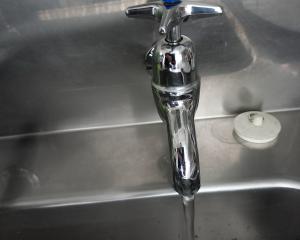
Water is one of the Selwyn District Council’s most important and costly services, and it may soon be even more expensive.
From Thursday until March 12, the council will consult the public on two main options for drinking water, sewage and stormwater. To have your say, visit yoursay.selwyn.govt.nz/your-water-done-well.
One option is to develop a council-controlled organisation (CCO), an entity that would still be owned and controlled by the council but as a separate company – similar to council-owned contractor CORDE.
The second option is to keep water services in-house, but different from the council’s current process due to changes proposed by the Government.
In the short term, the CCO will be more expensive due to the increased setup costs. On current estimations, in 2025/26 it will be 10% more expensive, increasing to 14% more in year two, and 35% in year three.
But over a 10-year period it will be between 2% and 7% cheaper. The expected dollar figures will be available tomorrow when consultation starts.
The council’s preferred option is the CCO for drinking water and wastewater, keeping stormwater in-house.
Council infrastructure and property executive director Tim Mason said while it will be up to the community to decide, a CCO would allow the council to borrow more for new infrastructure and pay it off over a longer period, reducing the burden on ratepayers.
“ We can currently borrow up to 280% (of the council’s total revenue). With the proposed establishment of the CCO we can borrow up to 500%. So, it’s quite a significant increase in the funds that are available.”
Mason said establishing a CCO would also allow the council to potentially provide other services such as the disposal of trade waste.
“ We know we have some businesses that are looking at coming to Selwyn. But in order to come here, they really need some assurance that we are going to be able to provide a good trade waste solution.”
Mason said the process to set up a CCO would be easier due to the district already having water meters installed and a user pays system.
An in-house model would still involve preparing and adopting a water services delivery plan outlining how the council will sustain its existing water services infrastructure and operations.
The benefit of an in-house model is the council maintains full control over all decision-making and is more similar to the way water is currently managed.
But the council says the in-house model has far more risks than the CCO, including limited funding, increased operational costs over the long term, and water infrastructure having to compete with other requests for funding such as roading and community facilities.
Mason said the council has left the door open to discuss working with other councils on a joint CCO, an option no other council has taken.
“ We were always keen to partner with other councils, and we gave that a pretty good shot. We saw the benefits quite early in joint CCOs.
“I think it was probably too early, and we struggled to get other councils interested in doing that.”













